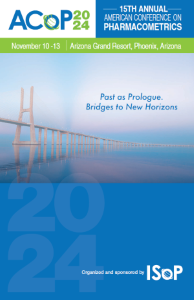Mathematical & Computational Sciences
(T-097) Model Predictive Control Regulates Blood Pressure During Simulated Kidney Replacement Therapy
Tuesday, November 12, 2024
7:00 AM - 5:00 PM MST
Annabelle Lint, n/a – Graduate Student Researcher, Chemical and Petroleum Engineering, University of Pittsburgh; Gilles Clermont, MD – Professor, Chemical and Petroleum Engineering and Critical Care Medicine, University of Pittsburgh; Raghavan Murugan, MD – Clinician, Critical Care Medicine, University of Pittsburgh; Kianoush Kashani, MD – Clinician, Nephrology and Hypertension, Mayo Clinic; Michael Pinsky, MD – Professor, Critical Care Medicine, University of Pittsburgh; Milos Hauskrecht, PhD – Professor, Computer Science, University of Pittsburgh; Vitaly Herasevich, MD – Professor, Nephrology and Hypertension, Mayo Clinic
- RP
Robert Parker, PhD
Professor
Departments of Chemical and Petroleum Engineering and Critical Care Medicine; University of Pittsburgh, United States
Author(s)
Objectives: Up to 30% of critically ill patients requiring intermittent kidney replacement therapy (KRT) experience intradialytic hypotension (IDH). IDH is an independent predictor of mortality, so there is a critical need to develop a clinical decision support tool that predicts and preemptively recommends personalized therapies to mitigate IDH. Prior work [1] used a risk-based reinforcement learning (RL) approach to learn dynamic, personalized treatment policies from data. However, it is not straightforward to embed constraints and multi-step dynamic causality in RL. To address this, we envision a novel data-driven RL and model-driven predictive control (MPC) algorithm to control systems where a fully informed mechanistic model is not feasible, e.g., KRT. The first step toward this goal is an MPC controller to generate personalized, preemptive treatment plans for KRT patients to stabilize blood pressure.
Methods: The 2-element Windkessel model captures the impact of fluid volume changes on blood pressure during KRT. This ordinary differential equation model was embedded within an MPC controller with the objective of stabilizing blood pressure while removing fluid during KRT. The MPC algorithm used blood pressure measurements as intermittent feedback to generate a personalized sequence of optimal ultrafiltration rate changes. To test the algorithm in silico, a population-representative probability transition matrix was constructed from clinical measurements and action data of 277 critically ill patients requiring intermittent hemodialysis (1778 treatments, 16516 measurements). It was then used to generate state transitions of simulated patients.
Results: 20000 simulated KRT treatments were generated by applying the MPC-generated treatment policy to clinical measurements. The MPC objective was to maintain blood pressure at an initial stable (normotensive) value by adjusting the ultrafiltration rate every 15 minutes. Results showed that the MPC controller generated treatment policies to mitigate blood pressure changes in silico, with median blood pressure further from hypotension (MPC=+1.5 mmHg, clinical=-2 mmHg) and absolute median deviations 25% smaller for MPC than clinical data. Additionally, median fluid removal increased by 13% (MPC=2266 mL, clinical=1997 mL), indicating that the MPC controller stabilized blood pressure while still removing fluid during KRT.
Conclusions: An MPC controller was designed to achieve hemodynamic stability during KRT. Comparing clinical outcomes to simulation results showed that following the MPC-generated treatment policy in silico mitigated blood pressure deviations while maintaining fluid removal. This MPC algorithm shows promise for integration in an RL-MPC approach, where well-characterized mechanistic processes, like patient fluid volume, can be explicitly modeled, while processes that are not as well understood, like unmeasurable intra-organ and intracellular interactions, can be learned by RL from data.
Citations: [1] McLaverty, et al. A Risk-Based Reinforcement Learning Algorithm to Improve Acute Renal Replacement Therapy [Paper presentation]. FOCAPO, San Antonio, Texas, United States, 2023.
Methods: The 2-element Windkessel model captures the impact of fluid volume changes on blood pressure during KRT. This ordinary differential equation model was embedded within an MPC controller with the objective of stabilizing blood pressure while removing fluid during KRT. The MPC algorithm used blood pressure measurements as intermittent feedback to generate a personalized sequence of optimal ultrafiltration rate changes. To test the algorithm in silico, a population-representative probability transition matrix was constructed from clinical measurements and action data of 277 critically ill patients requiring intermittent hemodialysis (1778 treatments, 16516 measurements). It was then used to generate state transitions of simulated patients.
Results: 20000 simulated KRT treatments were generated by applying the MPC-generated treatment policy to clinical measurements. The MPC objective was to maintain blood pressure at an initial stable (normotensive) value by adjusting the ultrafiltration rate every 15 minutes. Results showed that the MPC controller generated treatment policies to mitigate blood pressure changes in silico, with median blood pressure further from hypotension (MPC=+1.5 mmHg, clinical=-2 mmHg) and absolute median deviations 25% smaller for MPC than clinical data. Additionally, median fluid removal increased by 13% (MPC=2266 mL, clinical=1997 mL), indicating that the MPC controller stabilized blood pressure while still removing fluid during KRT.
Conclusions: An MPC controller was designed to achieve hemodynamic stability during KRT. Comparing clinical outcomes to simulation results showed that following the MPC-generated treatment policy in silico mitigated blood pressure deviations while maintaining fluid removal. This MPC algorithm shows promise for integration in an RL-MPC approach, where well-characterized mechanistic processes, like patient fluid volume, can be explicitly modeled, while processes that are not as well understood, like unmeasurable intra-organ and intracellular interactions, can be learned by RL from data.
Citations: [1] McLaverty, et al. A Risk-Based Reinforcement Learning Algorithm to Improve Acute Renal Replacement Therapy [Paper presentation]. FOCAPO, San Antonio, Texas, United States, 2023.

